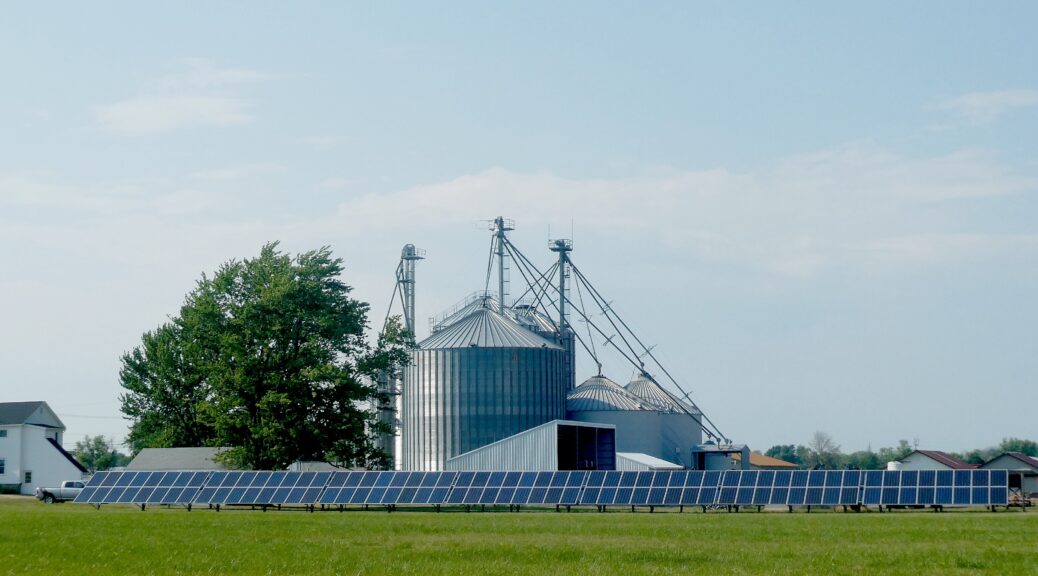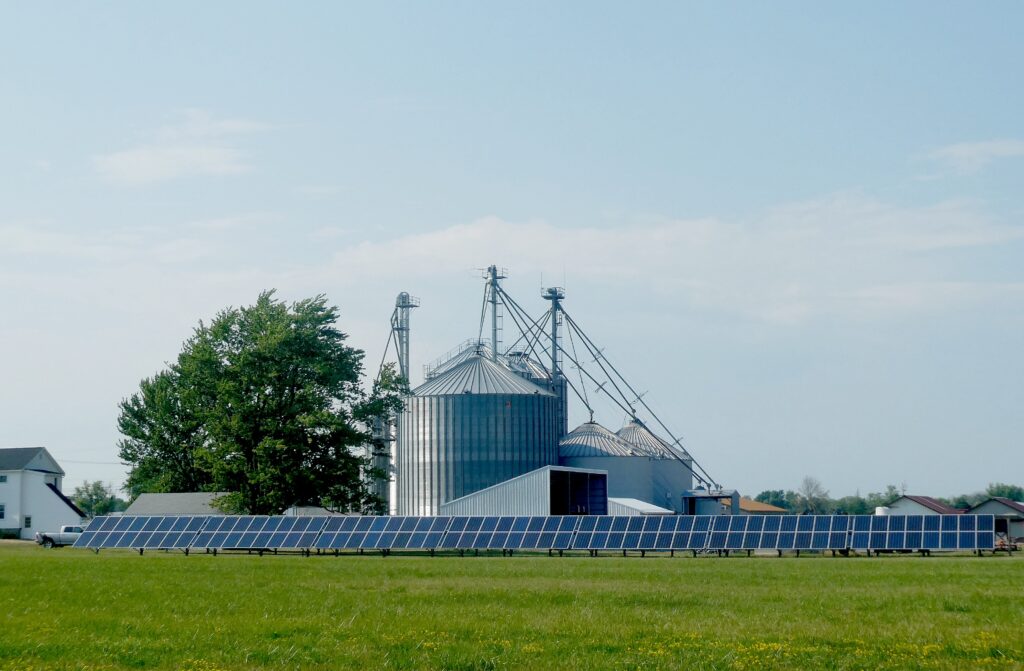
Over the past two years, more than 100 million Americans have been personally affected by an extreme weather event. The record-shattering heat wave that hit Puerto Rico earlier this month, recent wildfire smoke that blanketed the Midwest and East Coast, and devastating storms in California, are just the latest evidence that climate change is not a far-off threat. It’s a crisis that’s here now. President Joe Biden and Vice President Kamala Harris understand that to protect lives and livelihoods, we need to both slash emissions and give Americans the tools they need to prepare for the growing impacts of climate change.
That is why President Biden went to California to tour a coastal community that is working to safeguard their natural infrastructure – highlighting both the urgency of taking bold climate action and strengthening America’s resilience. During his visit, he previewed the Biden-Harris Administration’s latest actions to help communities adapt to the changing climate.
Through the President’s historic Investing in America agenda, the National Oceanic and Atmospheric Administration (NOAA) launched a first-ever $575 million Climate Resilience Regional Challenge to help coastal and Great Lakes communities, including Tribal communities in those regions, become more resilient to extreme weather and other impacts of the climate crisis. The funding will support innovative coastal resilience and adaptation solutions, such as building natural infrastructure, planning and preparing for community-led relocation, and protecting public access to coastal natural resources, that protect communities and ecosystems from sea level rise, tidal flooding hurricanes, storm surge, among other severe climate impacts. The Challenge is part of the $2.6 billion in resilience funding for NOAA included in the Inflation Reduction Act, and is part of the President’s Justice40 Initiative.
In addition, the Bipartisan Infrastructure Law is investing $2.3 billion in states, Territories, Tribes, and the District of Columbia over the next five years to bolster grid resilience across the country. As part of this investment, California is set to receive $67.4 million in the coming days, with the ability to apply for additional funding in the future, to modernize its electric grid to reduce impacts from extreme weather, natural disasters, and wildfires, and to ensure the reliability of the state’s power sector.
The Biden-Harris Administration knows that effective climate resilience strategies must be locally tailored and community-driven. That is why the President is also announcing that later this year, he will bring together state, local, Tribal, and Territorial leaders – who are managing the lived impacts of climate change every day – for a White House Summit on Building Climate Resilient Communities. As part of the Summit, the Biden-Harris Administration will release a new National Climate Resilience Framework designed to advance U.S. Government actions, in alignment with non-Federal efforts, towards a shared vision of a climate-resilient nation.
These announcements build on the Biden-Harris Administration’s unprecedented commitment to strengthening America’s climate resilience.
Investing in Climate Resilience and Adaptation
President Biden’s Investing in America agenda is building communities that are not only resilient to the impacts of a changing climate, but also safer, more equitable, and economically stronger. The President’s Bipartisan Infrastructure Law and Inflation Reduction Act together invest more than $50 billion in climate resilience and adaptation. This historic level of funding is already delivering real-world benefits while creating high-quality jobs that provide opportunities to community residents and offer a free and fair choice to join a union. The President’s investments are upgrading aging roads and bridges, providing tax credits for families to add more efficient appliances to their homes, restoring critical waterways, forests, and urban greenspaces, supporting resilient and climate-smart agriculture, bolstering water infrastructure across the American West, modernizing our electric grid, and funding research to develop the latest energy-storage technologies here in America.
Enhancing Drought Resilience Across the West
The Biden-Harris Administration is leading a whole-of-government effort to support drought-prone communities address the ongoing megadrought in the West. The Inflation Reduction Act and Bipartisan Infrastructure Law together include $15.4 billion to enhance drought resilience. Earlier this year, under President Biden’s leadership, the Department of the Interior and the seven Colorado River Basin states united around a historic consensus-based agreement to conserve water resources in the critical Colorado River System.
Combating the Growing Threat of Wildfires
In addition to implementing a 10-year Wildfire Crisis Strategy that will limit the impact and severity of fires in coming years, the Administration is helping communities prepare for and respond to wildfires right now. Recent actions include investing $7 billion to expand the wildland firefighter workforce, remove hazardous fuels from millions of acres of forest, and bring online new technology to better locate and respond to fires. The Administration also launched a new Community Wildfire Defense Grant program that helps local communities develop and implement wildfire preparedness plans. In addition, the Administration is tackling the pronounced health effects of wildfire smoke. AirNow.gov and its specialized Fire and Smoke Map provide Americans with real-time information about smoke and air quality so people can make informed decisions about how to stay safe. The Environmental Protection Agency recently made $10 million available to support wildfire smoke preparedness in community buildings, and awarded an additional $9 million for strategies to reduce smoke impacts.
Protecting Communities from Extreme Heat
The Biden-Harris Administration is saving lives by reducing exposure to extreme heat events. Community investments through the Low-Income Home Energy Assistance Program (LIHEAP) are reducing cooling costs and funding cooling centers in public facilities. The U.S. Forest Service’s Urban and Community Forestry Program recently announced $1 billion in grants to expand equitable access to trees and green spaces in urban communities, which will reduce heat-island effects and slash heating and cooling costs for residents. To better equip local officials and the public with robust and accessible information, the Administration launched Heat.gov, a centralized portal with real-time, interactive data and resources on extreme heat conditions, preparedness, and response.
Reducing Flood Risk for Households and Communities
Most homeowners’ and renters’ insurance does not cover flood damage. The Federal Emergency Management Agency’s National Flood Insurance Program is helping communities proactively protect their homes, businesses, and belongings from unexpected flood damage. This includes providing guidance to communities on how they can mitigate their flood risk. President Biden also reinstated the Federal Flood Risk Management Standard, which ensures that Federal agencies are considering and managing current and future flood risks in order to build a more resilient nation.
Promoting Climate-Smart Buildings and Infrastructure
Buildings and infrastructure investments last for generations when done right, so it is critical to plan and build in ways that promote long-term decarbonization and climate resilience. President Biden’s National Initiative to Advance Building Codes is accelerating adoption of modern building codes that protect people from extreme-weather events and save communities an estimated $1.6 billion a year in avoided damages. The Administration is also making billions of dollars available to build climate-smart buildings and green infrastructure, through programs as such the Federal Emergency Management Agency’s Building Resilient Infrastructure and Communities Program, the Department of Housing and Urban Development’s Green and Resilient Retrofit Program, and the Department of Transportation’s PROTECT program.
Incorporating Climate Risk into Decision-Making
Extreme weather related to climate change threatens the U.S. economy and the financial security of families, businesses, and workers. President Biden’s Executive Order on Climate-Related Financial Risk ensures that climate risk and resilience actions are appropriately factored into the formulation and execution of the President’s Budget, thereby properly managing and protecting Federal funding on behalf of taxpayers. This includes formally accounting for the risks that climate change pose in the President’s Budget for the first time.
Advancing Environmental Justice
The most severe harms from climate change fall disproportionately on communities that are least able to prepare for, and recover from, those harms. President Biden’s Justice40 Initiative makes it a goal that 40 percent of the overall benefits of certain Federal investments, including investments in climate resilience, flow to disadvantaged communities that are marginalized and overburdened by pollution. The President’s Executive Order on Revitalizing Our Nation’s Commitment to Environmental Justice for All directs agencies to better protect overburdened communities from pollution and environmental harms, including climate change. President Biden also created a White House Environmental Justice Advisory Council to ensure that the voices, perspectives, and lived experiences of communities with environmental justice concerns are heard in the White House and reflected in Federal policies. The Council includes a working group focused on climate resilience.
Supporting and Learning from Tribal Communities
Climate change has a disproportionate impact on Tribal communities and heritage, and Tribal representation is key to climate resilience efforts. The Bipartisan Infrastructure Law provides more than $200 million to support voluntary, community-led transition and relocation for Tribal communities severely threatened by climate change and accelerating coastal hazards. The Inflation Reduction Act includes Tribal-specific funding to support climate resilience and adaptation in Native communities. The Administration has also issued government-wide guidance and an accompanying implementation memorandum for Federal agencies on recognizing and including Indigenous Knowledge in Federal research, policy, and decision making.
Prioritizing Health and Safety
Climate and health outcomes are increasingly and inextricably linked. According to the Centers for Disease Control and Prevention, climate change is worsening asthma, cardiovascular disease, pest- and water-borne diseases, and other adverse health outcomes and chronic health conditions. President Biden established the first-ever Office of Climate Change and Health Equity in the Department of Health and Human Services to address the impact of climate change on the health of the American people. The Department’s Climate and Health Outlook index provides public data on climate and health projections to inform health professionals and the public.
Empowering Communities to Better Understand and Plan for Climate Risk
The Biden-Harris Administration is advancing actionable data, information, tools, and technical assistance to help people understand and address their climate risks. Specific steps include developing the Climate Mapping for Resilience and Adaptation (CMRA) tool to help communities understand and plan for local climate-related hazards; updating sea-level rise scenarios for all U.S. states and territories (Sea Level Rise Viewer) so communities can easily assess changes in coastal flood risk; creating the Climate and Economic Justice Screening Tool (CEJST) to help identify communities that will benefit from programs included in the Justice40 Initiative; developing an action plan to ensure that Federal agencies are producing coordinated, actionable climate information for end users; and increasing support for regional applied science and services centers, such as the U.S. Department of Agriculture’s Climate Hubs.
Harnessing the Power of Nature
Nature holds some of our best solutions to fight climate change and support communities’ adaptation to climate-related risks. Healthy forests, wetlands, and grasslands can also slow climate change by capturing and storing carbon dioxide. The Administration is taking bold action to ensure we look to nature and fully deploy nature-based solutions by setting the first national conservation goal through the America the Beautiful Initiative, to conserve at least 30% of U.S. lands and waters by 2030, launching the America the Beautiful Challenge, which provided $91 million in funds in the first year to protect and restore biodiversity, help achieve our climate goals, and ensure all Americans have access to nature, and improving forest health through President Biden’s Executive Order on Strengthening the Nation’s Forests, Communities, and Local Economies.



